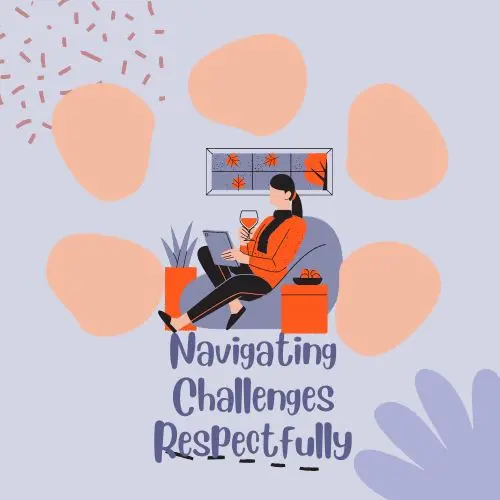Introduction
Relationships thrive when built upon solid foundations. We empower healthy bonds by understanding vital components that strengthen intimacy and partnership. This comprehensive guide explores relationship bases backed by research – from communication to trust – and common pitfalls. With awareness and effort, all dynamics can cultivate fulfillment.
The Foundations of Fulfilling Bonds
| Aspect | Extremely Important | Very Important |
|---|---|---|
| Trust | 92% | 7% |
| Honesty | 91% | 8% |
| Shared interests | 78% | 18% |
| Communication | 77% | 20% |
| Support | 76% | 21% |
| Intimacy | 73% | 23% |
| Compromise | 70% | 25% |
| Responsibilities | 69% | 26% |
| Friendship | 68% | 27% |
Understanding the Foundations

From fleeting dates to lifelong partnerships, certain qualities consistently emerge as relationship cornerstones. Research shows satisfied couples consciously cultivate:
- Trust – Having confidence in one another’s faithfulness and integrity strengthens security.
- Honesty – Openly sharing truth, including faults, is integral to intimacy development.
- Communication – Expressing needs respectfully through open yet considerate dialogue prevents resentment accumulation.
- Support – Uplifting each other’s personal growth, well-being, and goals nurtures fulfillment for individuals within the dynamic.
- Compromise – Fairly negotiating differences of opinions or needs requires flexibility on both sides for balance.
- Shared Interests – Finding enjoyment in activities promoting bonding outside of responsibilities or conflict discussions.
- Intimacy – Feeling emotionally and physically close through affection, affirmation, and quality time nurtures care.
These bases provide guidance and comfort through challenges when faced respectfully as a team rather than adversaries.
Common Struggles

While imperfection is human, constant behaviors weakening foundations threaten relationship health if unaddressed:
- Secrecy/Privacy – Withholding pertinent information evokes distrust over time.
- Conflict Avoidance – Not resolving issues respectfully allows disharmony accumulation.
- Lack of Affection – Physical and emotional distance nourishes disconnection.
- Defensiveness – An unwillingness to validate others’ perspectives breeds resentment.
- Negligence – Broken commitments and lack of effort/presence signal low priority.
- Self-Centeredness – Disregarding a partner’s needs signals a lack of care.
- Financial Dishonesty – Hidden spending/debts poison security and cooperation.
Self-reflection helps change unbeneficial patterns, strengthening intimacy and partnership over individual desires that threaten closeness.
Communication Best Practices
Effective communication is an essential foundation for fulfilling bonds:
- Listen Actively – Make eye contact and reflect thoughts for confirmation without judgment to feel understood.
- Validate Feelings – Before responding, acknowledge how the other feels without minimizing.
- Use “I” Statements – Personalize thoughts without blaming to prevent defensiveness.
- Find Compromise – Negotiate mutually valued solutions rather than demanding personal desires.
- Time it Wisely – Discuss heavy issues when unrushed and calm rather than during stress/fatigue.
- Be Honest and Kind – While truth matters, consider feelings and seek win-win resolutions.
- Avoid Assumptions – Clarify ambiguities to prevent speculation poisoning understanding.
With open yet tactful dialogue, even conflicting perspectives strengthen intimacy when respected collaboratively.
Navigating Challenges Respectfully

All dynamics experience issues requiring navigation:
- Focus on Behaviors – Address how actions make you feel instead of attacking character.
- Listen First – Seek to understand before assessing solutions shown to facilitate resolutions.
- Express Authentically – Share how you honestly feel non-defensively using “I” statements.
- Validate Each Other – Affirm the other’s right to perspective before disagreeing.
- Find Compromise – Negotiate where you can agree to disagree respectfully, where you cannot.
- Give Space as Needed – If tensions heighten, agreeing to revisit issues later facilitates a calmer resolution.
- Seek Mediation – Consult counselors impartially when frustrations prove consistently unproductive.
With patience, care, and willingness to forgive as with ourselves, relationships become sanctuaries that nurture life’s beauty through collaboration rather than strife alone.
Trust: The Foundation of Foundations
Beyond qualities like honesty, compromise, and support, trust emerges as relationships’ most integral foundation because of it:
- Provides Security – Trusting reliability, integrity, and benevolence reduces the mental burden of vulnerability.
- Facilitates Intimacy – Willingly sharing deepest thoughts/feelings requires trust in protection and acceptance.
- Enables Vulnerability – Authenticity is key yet risky, so trust makes emotional exposure viable.
- Motivates Investment – Why commit long-term without assuming good faith, consistency, and care from another?
- Buffers Conflict – Trust provides faith that tough talks won’t irreparably damage closeness sought in good conscience.
Consciously building trust through consistent reliability, validated care, and respect over time knits relationships’ most damage-proof fabric. While imperfections affect us all, trust rebounds from honesty – the truest foundation of foundations.
Conclusion
Together, trust, support, communication, and compromise weave relationships’ protective yet flexible frameworks, empowering fulfillment through life’s ebbs and flows. By thoughtfully cultivating these foundations with patience and empathy, connections become sanctuaries of understanding that uplift partners to be their most caring, wise, and liberated selves. An intentional focus investing in what nourishes bonds long-term safeguards hearts and enriches the community through stability and care freely given.

